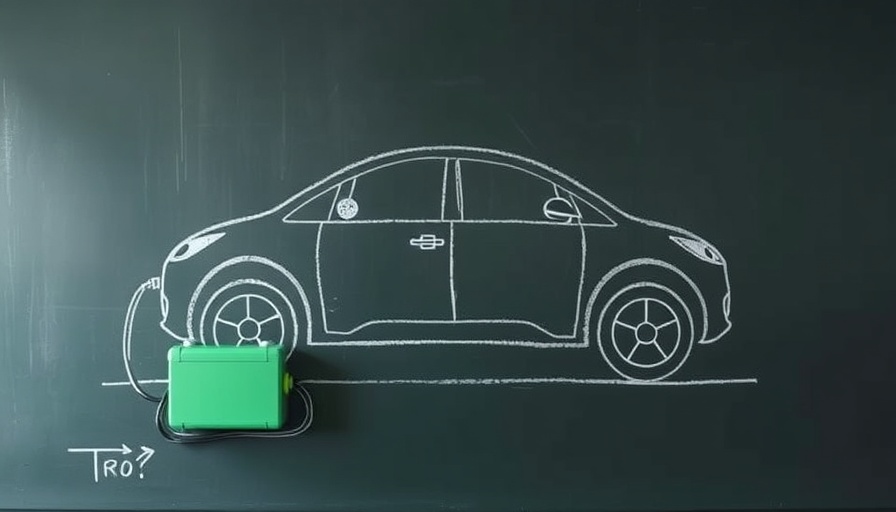
Revealing the Ambitious Venture: Jeff Bezos' EV Startup
This week, the spotlight shines on a surprising entry in the electric vehicle (EV) landscape: Slate, a startup that promises an affordable two-seater pickup truck with a competitive price tag of just $25,000. Backed by the renowned Jeff Bezos, Slate aims to disrupt the market as it aspires to roll out its vehicle by late 2026. The goal is nothing short of remarkable, especially in a sector increasingly dominated by high-priced alternatives. Slate isn't just an ordinary startup; it represents a cumulative response to the growing demand for cost-effective, eco-friendly vehicles, also emphasizing sustainable innovation and accessibility.
The Race for Affordable EVs: A Growing Necessity
As the world navigates a climate crisis, the shift toward electric vehicles is crucial. Established automotive giants are focusing on luxury EV models, often abandoning the budget market. This creates a unique opportunity for startups like Slate, which are committed to making electric transportation accessible. Bezos' involvement not only brings financial resources but also leverages his expansive business acumen—ideal for a startup aiming for disruptiveness.
Current Landscape of the EV Market
The EV market's landscape features incumbents like Tesla and new players who are rapidly innovating. According to recent industry reports, sales of electric pickups are soaring, yet most models come with hefty price tags that can exceed $40,000. Slate’s proposed pricing directly addresses this gap—promising affordability without compromising quality. This approach is something that consumers have been eagerly awaiting.
Challenges Ahead: Building a Sustainable Business Model
Despite its ambitions, Slate faces considerable hurdles. The automotive industry is notorious for its high entry barriers, including production costs, supply chain complexities, and regulatory requirements. For example, creating a reliable battery supply chain while managing production costs will demand strategic planning and execution. The actualizing of innovations in battery technology could greatly enhance Slate's prospects by further reducing vehicle costs and improving performance.
Future Predictions: The EV's Growth Trajectory
As Slate gears up toward its launch, the EV sector is anticipated to witness exponential growth over the next several years. Reports suggest that by 2030, EVs could represent up to 30% of the overall auto market. Startups that successfully innovate in design, ecology, and cost will likely lead this growth. With executives like Bezos steering the ship, expectations surrounding Slate are not only ambitious but reflective of a larger trend toward incorporating sustainability into our daily lives.
Why the Slate Launch Matters Now More Than Ever
The introduction of a budget-friendly EV truck couldn't come at a better time for consumers and the planet alike. Amid rising fuel prices and environmental concerns, the growth of affordable electric vehicles can resonate positively with potential buyers who are looking for alternatives to traditional gasoline trucks. Slate’s innovative focus epitomizes the shift toward making sustainable choices more accessible.
Call to Action: Keeping an Eye on Emerging Tech
As developments unfold with Slate and other startups in the EV space, staying informed about the latest tech news becomes increasingly important. Understanding these changes helps consumers navigate their choices and supports the growth of sustainability in their communities. For those curious about how technology affects their daily needs, subscribing to tech newsletters or following tech news articles can be valuable for keeping up with trends reshaping industries.
 Add Row
Add Row  Add
Add 



Write A Comment